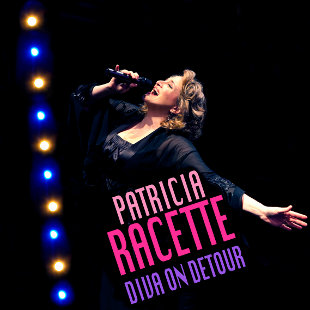June 23rd. Two days after the equinox. Not only did the Big Moon show up, the Mets (!?!) are now playing decent baseball. Matt Harvey’s superior success, the arrival of Eric Young, Jr., Omar Quintanilla, and Juan Lagares, the special guest appearances of Zack Wheeler are all adding up to a team that not only I’m no longer embarrassed to watch—they’re great to see even when they lose. Yet another miracle of summer, the best part of the year.
_________________________________________________________________
I’m a Metropolitan Opera subscriber, yet I have to say that the most intense operatic performance I heard this season was not at that house but across the plaza at Avery Fisher Hall. Conductor Alan Gilbert and the New York Philharmonic presented a concert version of Luigi Dallapicolla’s “Il Prigioniero” earlier this month, and I don’t think I breathed during the 50-minute duration of the work. Gerald Finley as the prisoner, Patricia Racette as his mother and Peter Hoare as the jailer were nothing short of superb, as were Alan Gilbert and the Philharmonic. Bravissimi!

Speaking of opera, it’s always an interesting proposition to consider how a particular production either honors a composer’s intentions or scrapes across the grain. A few weeks ago I experienced Willy Decker’s famous “red dress” version of “La Traviata” at the Met with mixed emotions. On the one hand, I enjoyed how he pared the opera down to its essence, yet I really questioned some of his choices. Dressing the chorus and supporting characters in black suits and ties? (Flora, Gastone, et al, sorry we somehow lost you in the crowd). Ditto taking the sole intermission after the first act (While “La Traviata” is among my top ten favorite operas, sitting through the rest of the work without a break made for an unnecessarily long evening). And having Violetta dying in a bleacher seat was ridiculous—the least Decker could have done was given that poor girl a divan.
Nevertheless, there were some arresting moments, especially the beginning of the final act when Violetta sees her fickle friends create another Girl of the Moment by clothing her in that red dress. Diana Damrau was quite good in the role, delivering perhaps the most eerie “È strano” imaginable at the conclusion of the opera. Placido Domingo continues his vanity tour as a baritone, and I wish to God he’d quit and leave these roles to singers who can really do them justice.
__________________________________________________________
Many months ago I made sure to get a ticket to the Met’s revival of “Dialogues of the Carmelites,” since only three performances were scheduled. What a marvel John Dexter’s production is—how spare, yet how it complements both the story as well as the music. This is one production both critics and audiences agree should not be replaced.
__________________________________________________________
 There’s a particular type of sadness most of us feel when a talented actor dies, especially at a young age. No matter how accomplished he or she may be, or how honored in terms of Oscars or Golden Globes bestowed, there’s that sense of deprivation, of missing out on what might have been. This was especially true with the passing of Natasha Richardson several years ago. But with the untimely death of James Gandolfini, there’s more—we mourn not only what might have been, but what iconically was.
There’s a particular type of sadness most of us feel when a talented actor dies, especially at a young age. No matter how accomplished he or she may be, or how honored in terms of Oscars or Golden Globes bestowed, there’s that sense of deprivation, of missing out on what might have been. This was especially true with the passing of Natasha Richardson several years ago. But with the untimely death of James Gandolfini, there’s more—we mourn not only what might have been, but what iconically was.
As the inimitable Tony Soprano, he had us from the get-go. Is there anyone who wasn’t charmed in the pilot of the show when Tony, noticing his shrink’s Italian surname on her diploma, smiled: “Melfi. What part of the boot you from, hon?” It was Gandolfini’s skill at his craft and his range as an actor that ultimately realized a character and a television show that clearly delineated the “before” and “after” in terms of adult drama. While he made Tony charming, he also with equal skill made him petty, ruthless, murderous, compassionate and confused—sometimes simultaneously.
Since Gandolfini’s death many lists of “Tony Soprano’s Best Moments” have appeared, but I couldn’t come up with a run-down like that no matter how I tried. Where do you start? Even more difficult, where do you end? His amusement at Silvio’s continual state of melt-down during the Big Game with Frank Sinatra, Jr.? His hammer and tongs confrontation with Carmela that ended in their separation (an advanced seminar in acting expertly taught by Gandolfini and Edie Falco and perhaps the most uncomfortable hour of drama ever televised)? His epic battles with Richie Aprile and Ralph Cifaretto, not to mention the way things ended with the latter (Pie-Oh-My indeed)? The horrific moment when he murdered Christopher? When “The Sopranos” aired, every episode was a showcase for both actor and character, to our delight and astonishment.
Gandolfini was set to star in a new HBO mini-series, “Criminal Justice,” in which he would have played a somewhat down-at-the-heels defense attorney. It would have been a good role for him and most likely would have demonstrated once and for all that he had more than Tony Soprano in his repertoire. But sadly, we’re left again with “might have been.”
Thank you, Mr. Gandolfini, and rest in peace.


